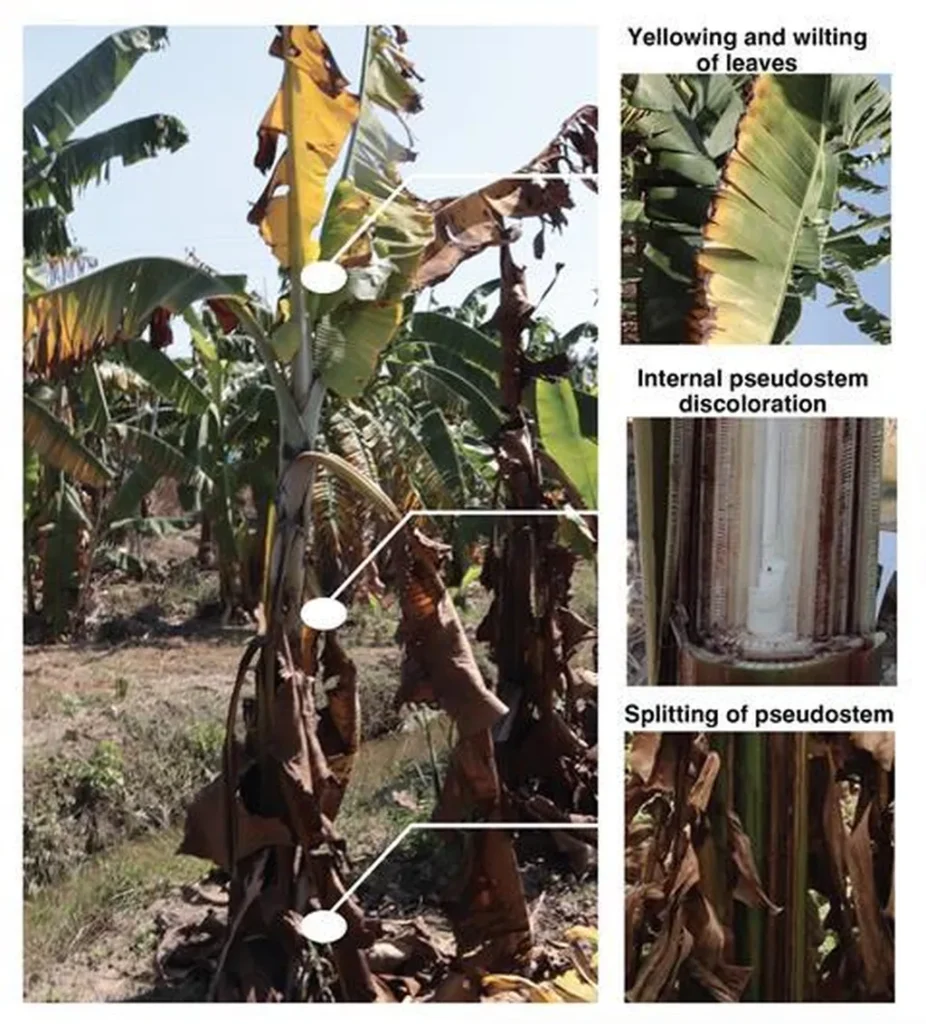In the heart of China’s tropical regions, a discovery is brewing that could revolutionize the way we combat one of the most devastating diseases threatening global banana production. Researchers, led by Dengbo Zhou at the National Key Laboratory for Tropical Crop Breeding in Sanya, have identified a promising new biocontrol agent: Streptomyces noursei D337-11. This soil-dwelling bacterium, isolated from disease-suppressive banana soils, has demonstrated an impressive ability to suppress Fusarium oxysporum f. sp. cubense tropical race 4 (Foc TR4), the causative agent of banana Fusarium wilt, also known as Panama disease.
The findings, published in the journal *Frontiers in Microbiology* (translated to “Frontiers in Microbiology” in English), reveal that Streptomyces noursei D337-11 not only suppresses the disease by 65.35% but also promotes plant growth. This dual functionality makes it a strong candidate for sustainable disease management in banana plantations.
“Our research provides a theoretical basis for exploring the application of microbial flavonoids in biological control of fungal diseases,” said Dengbo Zhou, the lead author of the study. The team’s integrated approach, combining untargeted metabolomics and genomic analysis, identified five bioactive metabolites produced by the bacterium, including naringenin, a flavonoid known for its health benefits in humans but never before recognized for its antifungal properties in plants.
The study’s mechanistic characterization revealed that naringenin exhibits antifungal activity through dual-target inhibition. Molecular docking showed strong binding to two crucial proteins in Foc TR4, disrupting cellular integrity and leading to ultrastructural anomalies in the fungus. This multi-target approach could potentially reduce the likelihood of the fungus developing resistance, a common challenge in disease management.
The implications for the agricultural sector are significant. Banana Fusarium wilt has devastated plantations worldwide, with tropical race 4 being particularly aggressive and difficult to control. The discovery of Streptomyces noursei D337-11 and its metabolites offers a promising alternative to chemical fungicides, which can harm the environment and beneficial soil microorganisms.
Moreover, the restoration of soil microbiota disrupted by Foc TR4, particularly the revival of Saccharimonadales populations, suggests that this biocontrol agent could contribute to overall soil health and sustainability. This is a critical factor for the energy sector, as healthy soils can enhance carbon sequestration and mitigate climate change.
The research also opens up new avenues for exploring microbial flavonoids in disease control. As Dengbo Zhou noted, “This is the first evidence of Streptomyces-derived naringenin as a multi-target antifungal agent.” The study’s genome-guided differential metabolomics approach provides a robust framework for identifying and characterizing bioactive metabolites from other soil microorganisms, potentially leading to the discovery of new biocontrol agents.
In the face of climate change and increasing pressure on agricultural systems, innovative solutions like this are more important than ever. The discovery of Streptomyces noursei D337-11 and its metabolites represents a significant step forward in the fight against banana Fusarium wilt and could pave the way for more sustainable and resilient agricultural practices. As the research community continues to unravel the complexities of soil microbiomes, we can expect to see more such breakthroughs, shaping the future of agriculture and contributing to a more sustainable energy sector.

